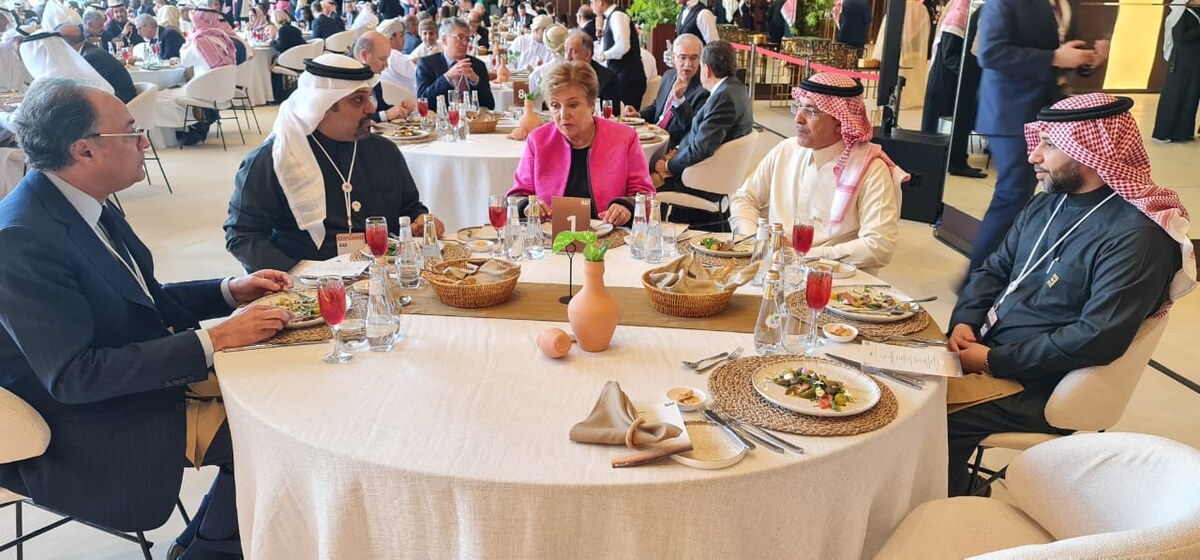ISLAMABAD: The Islamabad High Court (IHC) on Thursday reserved its verdict on a petition filed by ex-premier Imran Khan’s wife Bushra Bibi seeking her transfer form her Banigala residence, declared a sub-jail, to Adiala Jail, where her husband is incarcerated.
Bushra has been living under house arrest at her husband's sprawling Bani Gala mansion in Islamabad since Jan. 31 when both were sentenced to 14 years in prison in a case that relates to accusations they undervalued gifts from a state repository and gained profits from selling them while Khan was prime minister from 2018-22. Khan is jailed at Rawalpindi's Adiala Jail.
In February, Khan and his wife were also sentenced to seven years on charges they violated the country's marriage law when they wed in 2018 - the fourth sentence for Khan and the second for his wife.
During Thursday’s hearing, Bushra’s lawyer Usman Gill said after her sentencing in the state repository case by the trial court, his client went to Adiala Jail as per the trial court order’s which was also forwarded to the jail superintendent. But on the orders of the interior ministry, the chief commissioner issued an “illegal notification for transfer,” the lawyer argued.
“There was no instruction from the authorities concerned regarding the transfer from Adiala Jail to Banigala,” he said.
“Neither the provincial government nor did the Punjab prisons inspector general issue any such directive [for transfer] … The place of imprisonment was to be determined by the trial court and not the chief commissioner.”
The state’s counsel argued that Bushra was moved to Bani Gala because of security threats.
“Were the 141 women who were brought to Adiala after Bushra less privileged?” the judge hearing the case asked, saying they too should be imprisoned at their houses then.
“Sometimes you say that [you] cannot present her [Bushra] in the court as there are threats and at times, you say that the jail is not secure. Are you secure?” the judge quipped. “If I am confined in my home by my own will, I would be very happy but how can a prisoner’s property be turned into a sub-jail against his will?”
The IHC subsequently reserved its verdict on the petition.
In a separate petition to the court filed last month, Bushar, a deeply religious woman widely believed to be Khan’s spiritual guide, alleged she was being poisoned through contaminated food and subjected to “mental and physical torture which is becoming a serious threat to her health and life.” She also alleged that her room and bathroom had been bugged and multiple hidden cameras installed in a “blatant violation of her privacy, dignity and honor.”
The petition said Bushra was only given ten minutes for meetings with family members and lawyers, with five jail staff supervising at all times.
Khan was first jailed after being handed a three-year prison sentence in August 2023 by the Election Commission for not declaring assets earned from selling gifts worth more than 140 million rupees ($501,000) in state possession and received during his premiership. In January, Khan and Bushra were handed 14-year jail terms following a separate investigation by the country’s top anti-graft body into the same charges involving state gifts.
An anti-graft court in Islamabad also handed Khan a 10-year jail term in January for revealing state secrets, a week before national elections on Feb. 8. The ruling on his marriage to Bushra and a seven-year sentence each for both also came ahead of the polls.
Khan has also been indicted under Pakistan's anti-terrorism law in connection with violence against the military that erupted following his brief arrest related to the Al-Qadir case on May 9. A section of Pakistan's 1997 anti-terrorism act prescribes the death penalty as maximum punishment. Khan has denied the charges under the anti-terrorism law, saying he was in detention when the violence took place.
Khan’s convictions, which mean he is banned from holding public office, ruled the 71-year-old out of general elections held earlier this year. Arguably Pakistan's most popular politician, Khan says all cases against him are motivated to keep him out of politics.




















